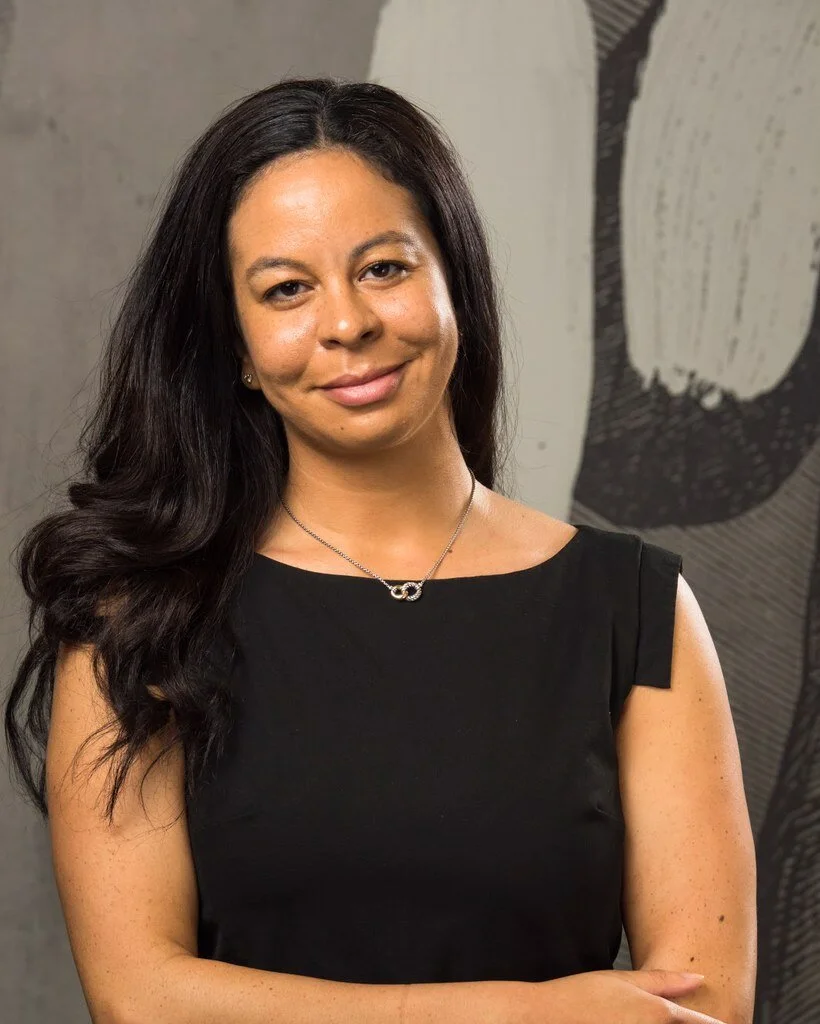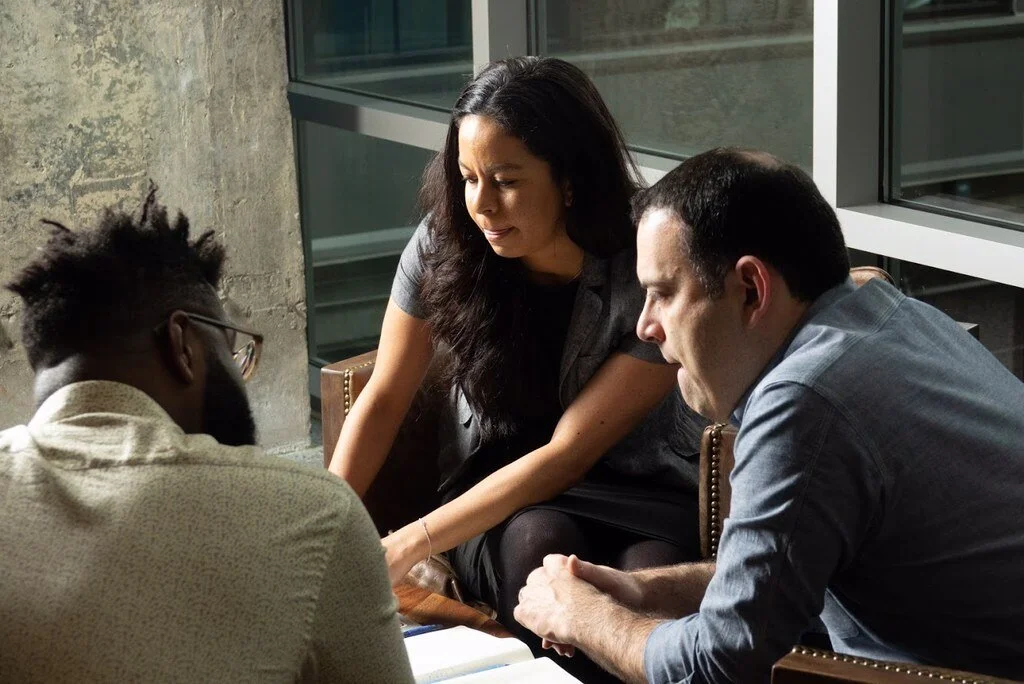Jessica Lynch, Social Impact Entrepreneur
Hi, Jessica! So let’s start with what you’re up to now. What do you do?
I work as a partner at Generation Titans, a social impact company I co-founded with my two partners about two years ago. We have two areas of work. The first is more like traditional consulting. We work with corporations, investors, and large campaigns, to help them engage with communities of color more responsibly and in a way that is authentic and not extractive. The other piece is building a pilot platform to provide resources for entrepreneurs of color in specific geographies or who work in a specific industry.
Can you go a little more into what you mean by extractive, within the context of your work?
I think a lot of times, right now, we’re at a place where brands recognize that activism and working with people of color is cool or the “in” thing. It’s extractive because often brands will use the image of someone or a community they represent, and those brands are rewarded with increased profit. But are brands listening to that community? Are they making investments in that community? So we try to help brands who say they have a purpose, to do it in a real way that’s authentic and that puts resources behind their words so it’s not just ads and commercials.
I love that. So how did you get to this point in your career?
I was passionate about education policy, and worked for two years as a college advisor in Greensboro, North Carolina. The juniors and seniors I worked with needed better opportunities to access and attend college, but you also start to realize how interconnected college access is with so many other issues in communities. Economic mobility isn’t isolated to just education. Going to college won’t solve everything because there’s still systemic racism, misogyny, and on and on. I used to think that if people just go to college, that was the answer to their problems. But I realized I needed to do work addressing barriers to entry, and at a large scale. It was hard to figure out what that meant for my career because it’s not as though you can just find that in a job posting. So I started doing social impact work through traditional consulting, but I wasn’t passionate about it. I went to the Obama Foundation and I really loved my experience there. Then I just wanted to start something on my own, and ended up working with colleagues from the Obama Foundation to start Generation Titans.
In a way, a lot of your work at Generation Titans focuses on building networks. Can you share a bit more about the unique nature of networking as a professional of color?
I think that as a Black woman, and as an introvert, it’s been a learning curve for me personally (laughs). I’m not the type of person that likes to go to all the happy hours, talking to everyone in the room. But, I know I can connect one-on-one and I do well when I can be real with people. So I usually try to make a deeper connection with one or two people. I’ve given that advice to other people, too -- if your style of networking isn’t true to who you are, it’s going to seem forced. I learned the hard way, trying to perform the way I thought networking is meant to be.
I go to a lot of conferences. I know some people take more of a “whatever happens, happens” approach. I will typically do research before attending an event or panel. I’ll try to identify people I want to connect with, and panels and sessions that I’m excited about. I also rely on the network of amazing Black women I have had the opportunity to go to school with, to work with, and I will try to keep them updated on what I’m doing. It’s also important to understand that who you reach out to for help doesn’t have to be someone at your job or in your industry. That has been a real process, too -- just asking for help, being honest about where I’m at, and sharing how I want to collaborate with other people.
Describe your day-to-day.
It ranges. Sometimes it’s building out a project plan. Sometimes it’s more conceptual, where I spend time thinking about what being our startup strategy looks like for us. Sometimes it’s dealing with our budget, and other day-to-day aspects of managing business operations. On the consulting side, it looks more like sales, and building relationships -- just trying to get in the door and talk to people. On the entrepreneurship side, we talk to entrepreneurs and learn what their specific needs are, and trying to come up with unique solutions where we aren’t redundant and can distinguish ourselves. We might work with a client or a partner, or have a brainstorm, or go through Quickbooks to analyze the budget. It varies day to day and so many things happen each day.
What are the pros and cons of what you do?
Well, it’s kind of a pro and a con but you’re the boss. You can say here’s what we’re trying to build, and you have to build buy-in with with people outside your team on the idea. But that’s also scary because if an idea doesn’t work, it’s on you. I’m a planner and want to know what is happening in three months, six months, nine months out. In a startup, you’re constantly changing and evolving as you learn more. That’s been hard. Not knowing what happens in 12 months. In a traditional nine-to-five, you have the comfort of knowing how you’ll grow, you have an idea of where your role is going to take you. But as a startup, it’s really rewarding when you have wins because you saw it through from start to finish. It was just an idea and you made it happen and now it’s real.
Is tech making space for people of color?
We talk about this constantly. And not just for ourselves because we’re trying to be a part of this space, but also because of the entrepreneurs we work with who are finding their footing in tech, in and outside of Silicon Valley, in venture capital. There’s a lot of bias. It’s well-documented. There is so much signaling. People will ask, what school did you go to? Because so many companies are new, there’s no way to tell whether a founder or a company is going to be great, so people use these markers like, who have you worked for? But those are not proven methods for figuring out who or what is worthy of investment or who will be a great founder.
Outside of the Bay Area, we are seeing the tech communities in places like Atlanta and Philly saying “We can build our own tables. We don’t have to try and fit in at yours.” I get excited about that shift, and building wealth for our community as a collective. Instead of someone looking at you to figure out how you fit into their checklist of what is desirable, I think there is a new community that is saying “Let’s figure out how we can raise capital together and we can all get to the next level.”
It’s been hard, though. Social capital and networks are so important. Who you know is such a big thing in this space, and access to those rooms. Even just access to information. I didn’t grow up knowing a lot about coding or tech as a space, or even angel investing. So you have to do a lot to figure out where the opportunities are. It’s also worth figuring out what’s free. You can take a class at the General Assembly or enroll in a coding bootcamp, but it’s thousands of dollars. There are lots of resources at the grassroots level focused on allowing people in and helping them navigate this space.
What is a moment or some words of inspiration that you consistently return to?
There is one moment I remember from when I first started working in consulting. I was really excited to have the job, and I had a little imposter syndrome. The first year, I would always want to prove my value for being there, so I would be the first to volunteer to take notes during meetings. I don’t know what I was trying to prove. But there was this woman whose project I was working on. I had worked under her for six months and she was a mentor. One day she said to me, “You’re present but you’re passive. If you want to be more than the note taker, you need to claim space in the room.” I think of that today when trying to find my utility in a room. And so I would advise young black women to use their voices. Our voice is productive and powerful, and we bring so much to the spaces we are in. That is our value -- not taking notes, not getting coffee, but being present and bring our perspectives to spaces
What makes you uniquely suited to do what you do?
I’m someone who likes to connect the dots, and it happens pretty naturally. I’ll talk to someone and think, “Oh, this person needs to meet this other person.” It’s useful at work. And I like solving problems -- how to organize my day, what the team needs to do, what I need to do -- to get things done. When things go left or something unexpected happens, it gives me so much energy and motivation because I’m like, “I never want to experience that again!” (laughs) And, also, I think just having a lot of work experiences. I’ve worked in consulting, at a nonprofit, and now at a startup, so I’m able to pull from that diverse skill set.
What are you excited about for the future?
Right now, I’m in the early stages of a startup. But in the next year or two, if we do the things we want to do, we will have centered entrepreneurs of color and demonstrated their value. That will be awesome for us. They’re running amazing businesses. I want to have my friends support them, and see my friends buying those products. I see how that vision could be real, even though it’s going to take some time. I will feel good about what we’ve done when other people see entrepreneurship as something they can do, and to realize that they don’t have to be in Silicon Valley. They don’t have to fit some specific profile. They can be themselves.
Please share this post with a friend, and follow us at @BlackWomenWorkIG!


